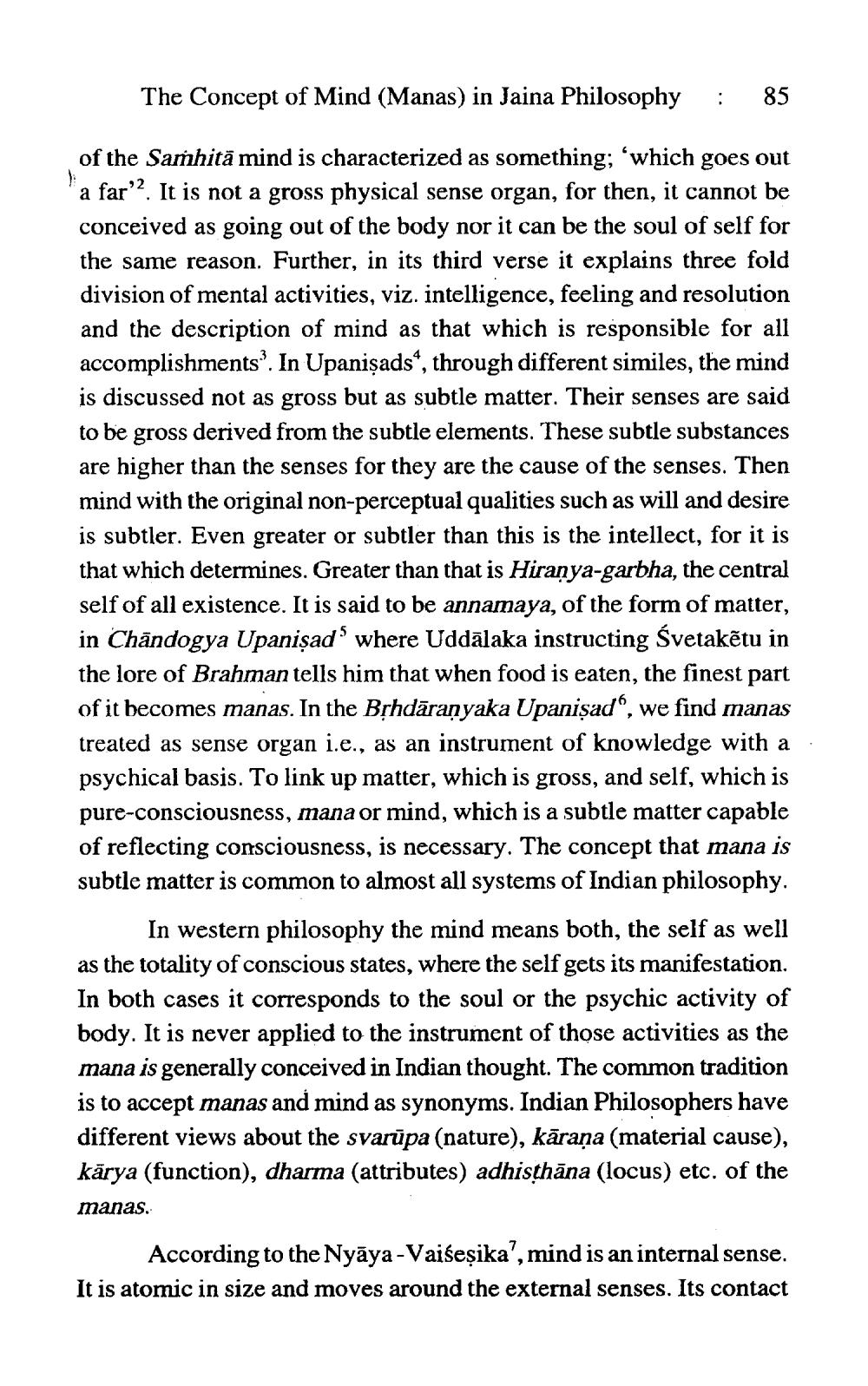________________
The Concept of Mind (Manas) in Jaina Philosophy : 85
}:
of the Samhita mind is characterized as something; 'which goes out a far'2. It is not a gross physical sense organ, for then, it cannot be conceived as going out of the body nor it can be the soul of self for the same reason. Further, in its third verse it explains three fold division of mental activities, viz. intelligence, feeling and resolution and the description of mind as that which is responsible for all accomplishments. In Upanisads, through different similes, the mind is discussed not as gross but as subtle matter. Their senses are said to be gross derived from the subtle elements. These subtle substances are higher than the senses for they are the cause of the senses. Then mind with the original non-perceptual qualities such as will and desire is subtler. Even greater or subtler than this is the intellect, for it is that which determines. Greater than that is Hiranya-garbha, the central self of all existence. It is said to be annamaya, of the form of matter, in Chandogya Upanisad where Uddālaka instructing Śvetaketu in the lore of Brahman tells him that when food is eaten, the finest part of it becomes manas. In the Bṛhdāraṇyaka Upaniṣad, we find manas treated as sense organ i.e., as an instrument of knowledge with a psychical basis. To link up matter, which is gross, and self, which is pure-consciousness, mana or mind, which is a subtle matter capable of reflecting consciousness, is necessary. The concept that mana is subtle matter is common to almost all systems of Indian philosophy.
In western philosophy the mind means both, the self as well as the totality of conscious states, where the self gets its manifestation. In both cases it corresponds to the soul or the psychic activity of body. It is never applied to the instrument of those activities as the mana is generally conceived in Indian thought. The common tradition is to accept manas and mind as synonyms. Indian Philosophers have different views about the svarūpa (nature), kāraṇa (material cause), karya (function), dharma (attributes) adhisthāna (locus) etc. of the
manas.
According to the Nyaya - Vaiseṣika', mind is an internal sense. It is atomic in size and moves around the external senses. Its contact




